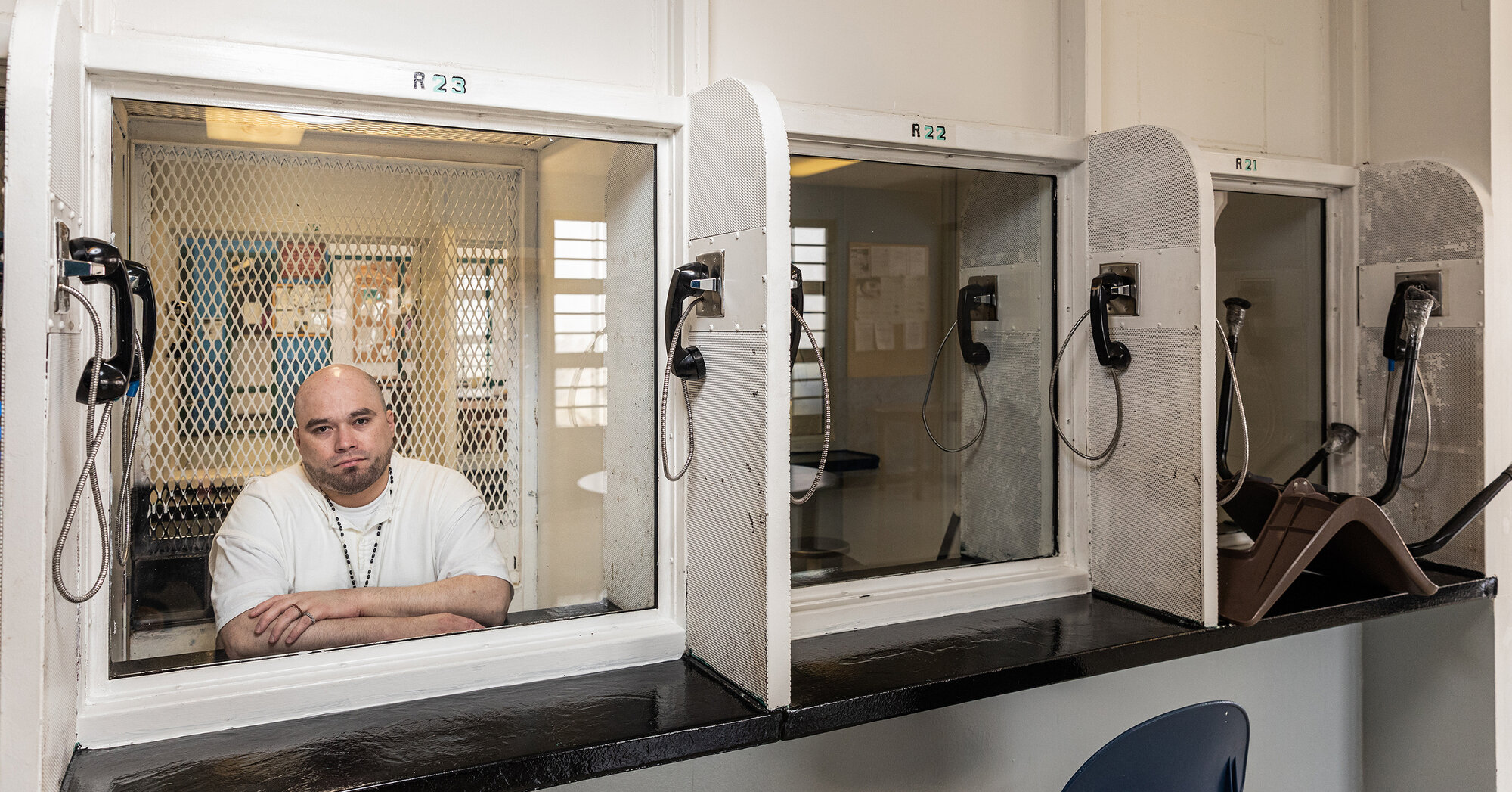
*Warning: The content ahead includes graphic depictions of violence. Reader discretion is advised.*
Death is an inevitable aspect of human existence. However, for individuals condemned to face execution, death becomes a precise moment in time, a countdown to their final breaths. Prior to the implementation of capital punishment, whether through lethal injection, the gas chamber, or other historical methods, those on death row are granted the opportunity to utter their last words.
According to Jeff Kirchmeier, a law professor at the City University of New York School of Law and author of "Imprisoned by the Past: Warren McCleskey and the American Death Penalty," the contemporary practice in the United States has roots stretching back hundreds of years, likely even further. While the precise origin remains elusive, it is intertwined with the historical spectacle of public executions, tracing back to England and influencing American legal traditions.
Kirchmeier suggests that allowing condemned individuals to speak their final words serves a dual purpose: it maintains orderliness during the execution process and potentially offers a moment of repentance or reflection from a religious perspective. Additionally, these statements may serve as cautionary tales, warning spectators of the consequences of immoral behavior.
Facing imminent death, many individuals use their final moments to seek forgiveness from both the families of their victims and their own loved ones. Others adopt a defiant or even humorously unsettling demeanor.
One psychological theory, as discussed in a 2016 article on The Cut and published in Frontiers in Psychology, posits that individuals facing impending death may not express primarily negative emotions. Instead, their minds may subconsciously steer them toward more positive sentiments as a coping mechanism to alleviate the overwhelming fear of their situation.
In this exploration, let's examine the final statements of five executed criminals, offering insight into the complexity of human emotions and the profound impact of mortality.
Wallace Wilkerson
In 1877, Wallace Wilkerson was convicted by the Territory of Utah for the murder of William Baxter, a result of a tense altercation that erupted during a card game. Wilkerson, identified as a stockman and military drummer, admitted to the crime and was faced with the grim choice of execution method: firing squad, decapitation, or hanging.
On the fateful day of May 16, 1879, as the hour of his execution approached, Wilkerson displayed an uncommon resolve. Seated calmly in a chair, he defiantly held a cigar, refusing the offer of a blindfold. With unwavering courage, he declared, “I give you my word. I intend to die like a man, looking my executioners right in the eye.”
As the signal was given and the firing squad aimed their weapons, the initial volley of bullets missed their mark, failing to instantly end Wilkerson's life. In a harrowing moment of desperation, he cried out in disbelief, “Oh my God! Oh my God! They have missed!”
What followed was a gruesome ordeal, as Wilkerson struggled for breath, enduring an agonizing 15 to 27 minutes, depending on various eyewitness testimonies, before succumbing to the inevitable embrace of death, bleeding out from his wounds. This tragic and haunting episode serves as a chilling reminder of the brutal realities of justice and the fragility of life.
John Arthur Spenkelink
In February of 1973, John Arthur Spenkelink encountered Joseph J. Szymankiewicz, a 45-year-old hitchhiker, on the roads of Tallahassee, Florida. Their chance meeting took a dark turn when they retired to a nearby hotel, where Spenkelink claimed to have acted in self-defense, shooting and killing Szymankiewicz after an alleged theft of money and a sexual assault.
However, justice took a different course when, later that same year, a jury rendered a verdict of guilt for Spenkelink on charges of first-degree murder, sealing his fate with a sentence of death.
Throughout his tenure on death row, Spenkelink fervently asserted his belief that his execution was a consequence of inadequate legal representation, rather than the true measure of his guilt or innocence.
This sentiment was echoed in his poignant final words as he faced the electric chair on May 26, 1979: "Capital punishment," he declared, "Them without the capital get the punishment."
Spenkelink's case garnered widespread attention, marking him as a pivotal figure in the reinstatement of capital punishment in Florida following its suspension in 1976. His story serves as a sobering reminder of the complexities and controversies surrounding the death penalty, raising profound questions about justice, equality, and the value of human life.
Aileen Wuornos
Aileen "Lee" Wuornos, a notorious sex worker convicted of the murders of seven men along Highway I-75 in Florida, etched her name in history as the first woman ever designated as a serial killer by the FBI. On October 9, 2002, Wuornos met her end via lethal injection, concluding a tumultuous journey marked by violence and mental deterioration.
As her time on death row unfolded, Wuornos's mental health spiraled rapidly downward, a descent observed by numerous attorneys who sought legal recourse on her behalf, citing her increasingly bizarre and delusional behavior.
In the solemn confines of the death chamber, Wuornos delivered a final, cryptic message: "I'd just like to say I'm sailing with the rock, and I'll be back like Independence Day, with Jesus June 6. Like the movie, big mother ship and all, I'll be back." This eerie proclamation, laden with references to popular culture and religious imagery, has been interpreted by many experts as a poignant reflection of her deteriorating mental state.
Jeff Kirchmeier, a legal scholar, sheds light on the broader context surrounding such peculiar last statements. He notes that a significant portion of death row inmates grapple with mental illness, brain damage, and other cognitive impairments, which may manifest in their final words.
These unconventional utterances, often sensationalized by the media, serve as a stark reminder of the humanity within those condemned to die, highlighting the complexities and moral dilemmas inherent in the practice of capital punishment.
Douglas Roberts
Douglas Roberts, recalling the gruesome events of May 18, 1996, in San Antonio, Texas, admitted to being heavily intoxicated when he robbed and brutally murdered Jerry Velez.
In a chilling videotaped confession to the police, Roberts revealed the horrifying details of the crime, describing how he mercilessly stabbed Velez multiple times before callously running over his body with his car. Subsequently, in January 1997, a jury found Roberts guilty of capital murder.
Moments before the lethal drugs coursed through his veins on April 20, 2005, Roberts delivered his final words with a disturbing smile: "I've been hanging around this popsicle stand way too long. I want to tell you all. When I die, bury me deep, lay two speakers at my feet, put some headphones on my head and rock 'n' roll me when I'm dead. I'll see you in heaven someday." This macabre request, blending humor with an unsettling sense of finality, underscores the gravity of his actions and the callous disregard for human life.
The juxtaposition of Roberts' jovial demeanor with the heinous nature of his crimes highlights the complexities of the human psyche, leaving observers grappling with the enigma of morality and redemption even in the face of ultimate punishment.
Juan Martin Garcia
Juan Martin Garcia, a member of a gang, committed a senseless act of violence on September 17, 1998, when he fatally shot Hugo Solano, a Christian missionary newly arrived in Houston from Mexico, during a robbery. The robbery yielded a mere $8, underscoring the tragic and disproportionate loss of life for a paltry sum. Subsequently, Garcia was convicted of capital murder on June 21, 2000, and sentenced to death.
According to Jeff Kirchmeier, the significance of last statements lies not only in their role of providing closure to the victims' families but also in compelling the condemned to confront the gravity of their actions and the course of their lives. Often, these final words contain elements of repentance and remorse, fulfilling societal expectations of seeking redemption and reconciliation.
In the case of Garcia, on October 6, 2015, moments before facing his own mortality, he seized the opportunity to express profound regret and offer a heartfelt apology to Solano's widow and children. "The harm that I did to your dad and husband… I hope this brings you closure," Garcia earnestly conveyed, as reported by the Associated Press. "I never wanted to hurt any of you all."
Garcia's words, delivered with sincerity in his final moments, reflect a desire for atonement and reconciliation, highlighting the enduring power of remorse even in the darkest of circumstances. His acknowledgment of the pain he inflicted serves as a poignant reminder of the human capacity for redemption and the quest for peace in the aftermath of tragedy.
See Also:
